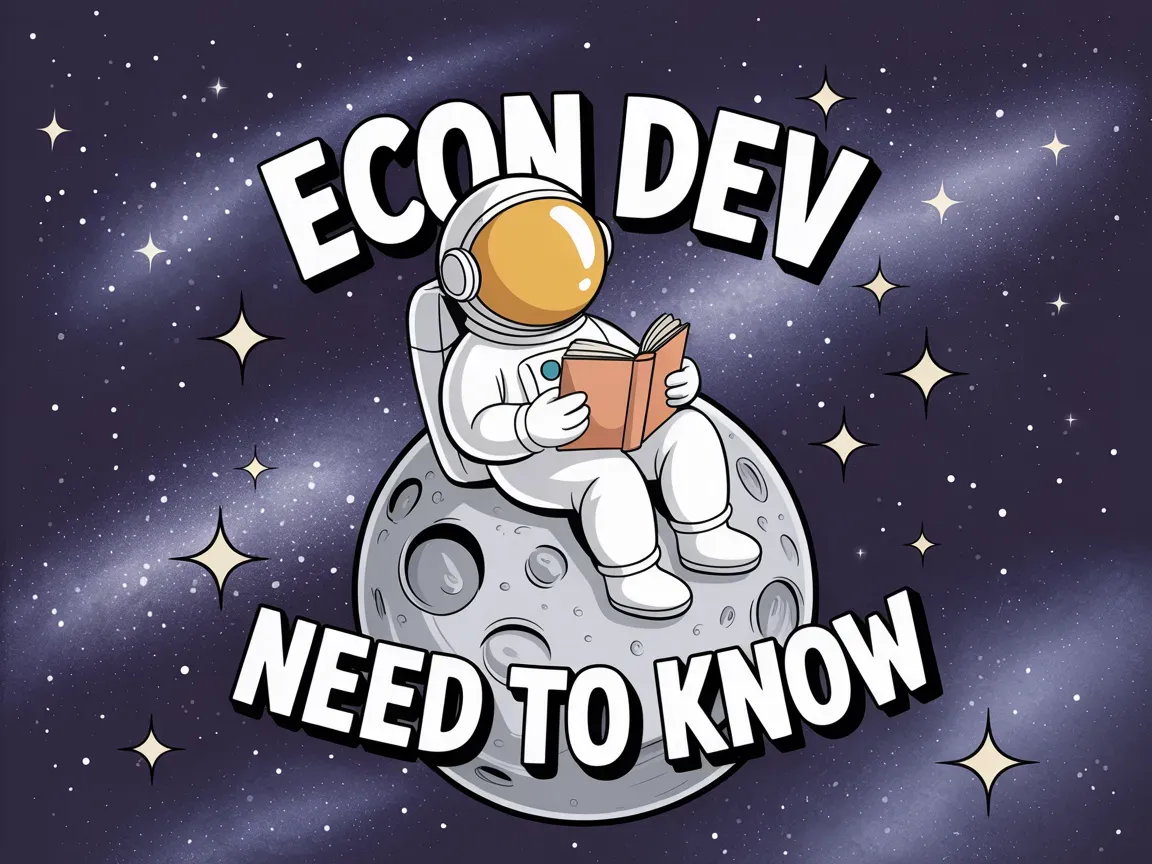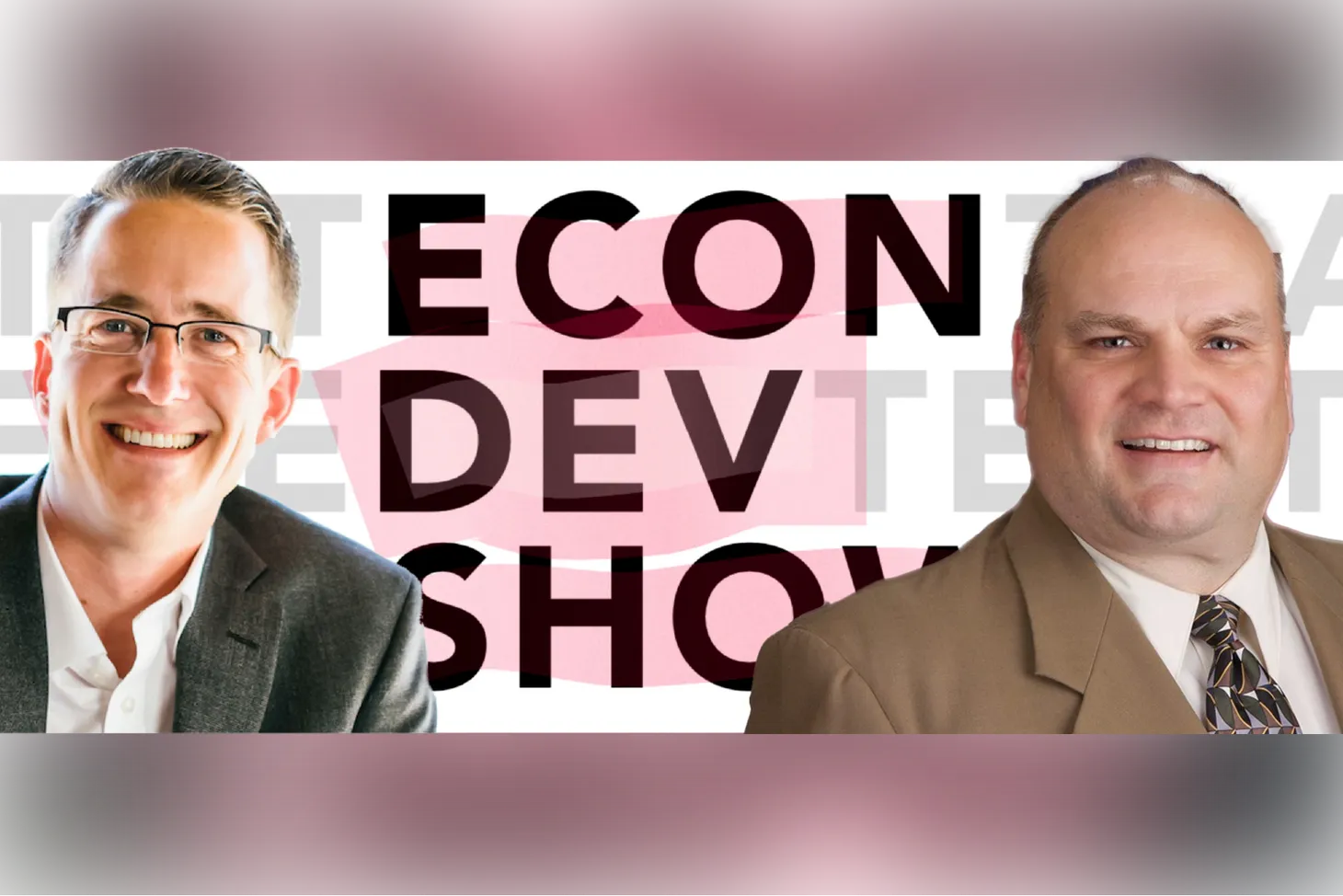Five Essential Ingredients For Economic Development Success
Economic development is less straightforward than making banana pudding, but not much.

Table of Contents
The following is a thought leadership post by Andy Portera of Portera & Associates, LLC.
Halloween is now behind us, and the holidays are right around the corner. Sadly, I'm already thinking about all the food I will enjoy over the next two months. As a southerner, banana pudding is one of my favorite desserts. It may be simple, but it is hard to beat. Gather a few key ingredients, follow a recipe, and deliciousness awaits!
Economic development may be less straightforward than making banana pudding, but it doesn't have to be complicated. A few key ingredients can make all the difference in a community's success. Here are five critical elements for economic development success:
1st Ingredient - Plan
A community MUST have an economic development plan, and the plan should meet the following criteria:
- It should be up to date. Five or ten-year-old strategic plans are ineffective because today's rate of change is so fast. Communities should constantly re-evaluate their economic and community development plans.
- The plan should be concise (think 5-7 pages, not 100), actionable (assign tasks and establish a work schedule), and flexible (be able to amend and change course if necessary).
- Also, the community should help create its economic development plan. Don't leave all the planning work for a consultant. You know better than a consultant what will and won't work for your community!
For a plan, every community is unique, with distinct strengths and weaknesses. Economic development does not lend itself to cookie-cutter solutions, but here are some essential elements that every community should consider:
- Business Retention & Expansion
- For most communities, about 80% of new jobs you add will come from companies already in your community.
- Don't walk past an old friend to meet a new one. Too many communities focus too much on attracting the next new thing. For most communities, "recruit-recruit-recruit" should not be the primary focus of their economic development efforts.
- Pay attention to your existing companies first. Work to make them efficient and healthy before turning your attention to attracting outside investment.
2. Education and Workforce
- Your education system and workforce are the engines of your community.
- In a recent survey, corporate executives ranked the 25 most critical site selection factors. The two most important factors were labor availability and labor costs, rated as important or very important by 95+% of respondents.
- The ability of your local businesses and education system to work together is critical for your community's success. Educators and the business community should always look for ways to collaborate. Creating opportunities for students with internships and apprenticeships, having companies donate equipment for training, and engaging businesses to help teach in-demand skills are just a few ways to do this.
Every community would benefit by following Tupelo, Mississippi's example of treating every person as a resource and developing that resource to the maximum.
3. Appearance
- What your community looks like matters for the people and companies you already have and the people and businesses you want to attract. Give people a reason to care instead of asking them to care. Tourists, prospective residents, and companies don't want to go to communities that don't care about themselves. Clean up your downtowns, roadways, and local businesses to show you care.
4. Quality of Life
- Quality of life factors will continue to grow in importance as younger generations mature. When my sons - ages 15 and 13 - talk about where they want to go to college or live one day, it is all about what the city offers in terms of population, retail, recreation, and entertainment. Younger generations increasingly choose where they want to live first, move there, and then worry about getting a job. Your community needs something to offer regarding the high-priority quality of life factors like retail, recreation, and a vibrant downtown.
2nd Ingredient – Leadership
- Every community needs an economic and community development QB - someone who wakes up and works daily to improve your community. But one person on their own is POWERLESS! One person can't do this work by themselves.
- The QB needs a leadership support group - people passionate about moving the community forward.
- Then, the QB and support group need to recruit as many leaders as possible from every corner of the community to help identify, prioritize, and solve problems.
Community and economic development often involve complex issues that one person or group can't solve. One person can get things going, and a small group can make a change, but genuine success comes when the community gets passionately involved in the movement. This is when the magic happens.
3rd Ingredient – Collaborative Mindset
- A community should embrace and promote collaboration among its people and organizations. Communities need as many partners as they can pulling in the same direction.
- Turf wars and boundary lines are slowly killing communities.
- People and organizations must see others as partners, not competitors.
Fighting to hold on to your piece of the pie thwarts progress and keeps things as is. Quit working in silos and don't let artificial boundary lines affect your economic development efforts.
4th Ingredient – Action
- James Clear, the author of the book Atomic Habits, says:
The more prepared person usually wins, but
You get credit for action, not preparation.
- None of the elements I've talked about matters unless you do something. Don't wait for the perfect time to implement a pilot program or start a new initiative. You should start now and adjust as you go. You'll learn more about what is right (and wrong) for your community by doing something.
5th Ingredient – Celebrate Your Successes
- Economic and community development work is hard, and it takes constant effort. It is vital that you celebrate every win, no matter how small. Momentum is contagious, so take advantage of all you can get.
- Also, don't worry about who gets the credit. As Indira Gandhi, the former Prime Minister of India, once said, "there are two kinds of people in the world, people who do the work and people that take the credit. Try to be in the first group. There is more room there."
RECAP:
1. Make a plan. It should be straightforward, action-oriented, and flexible. If you are doing something that isn't working, change course and do something different. If you do something and have success, then R-E-P-E-A-T.
2. Develop and engage a diverse group of leaders – Look for leaders in every corner of the community. Look to these leaders (not consultants) to help identify and solve problems. The communities that get ahead have a core leadership group that attracts many other leaders to help them identify, prioritize, and solve problems.
3. Collaborate – One person can start it, and one person plus a small group can affect change. But the magic happens when one person, a small group, and a diverse group of engaged residents get behind the effort.
4. Take action – Nothing will change unless you do something. Don't wait for the perfect time or perfect plan. Focus on one thing in your community – appearance, workforce, infrastructure - and do something. START NOW.
5. Celebrate success, and don't worry about who gets the credit. Economic development is an ongoing effort that can take time to see. When you have success, let everyone know about it. And don't worry about getting the credit. There are plenty of people lined up to do this.
by Andy Portera of Portera & Associates, LLC. Subscribe to Andy's Rural Economic Development Newsletter on LinkedIn.
Econ Dev Show Newsletter
Join the newsletter to receive the latest updates in your inbox.


